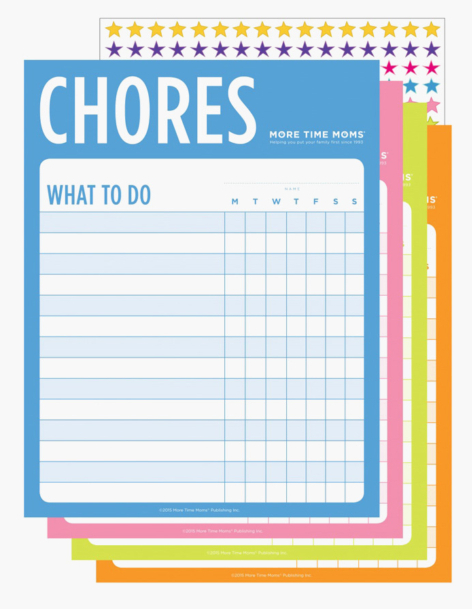The Chore Challenge: How to Encourage Your Kids to Pitch in and Help Out
 As parents, we want our children to become responsible and independent adults. One way to instill these values is by giving them chores and responsibilities around the house. However, getting kids to pitch in and help out can often feel like a daunting challenge. It’s not uncommon for parents to feel like they’re constantly nagging or bribing their kids to do their chores, only to see the same messes and unfinished tasks day after day.
As parents, we want our children to become responsible and independent adults. One way to instill these values is by giving them chores and responsibilities around the house. However, getting kids to pitch in and help out can often feel like a daunting challenge. It’s not uncommon for parents to feel like they’re constantly nagging or bribing their kids to do their chores, only to see the same messes and unfinished tasks day after day.
But fear not; there are ways to encourage your kids to take ownership of household tasks and develop a sense of responsibility. In this article, we’ll explore strategies for making chores a positive experience for the whole family.
The Chore Challenge
Encouraging children to help with household chores can seem challenging, but it has many benefits. Not only does it instill responsibility, but it also fosters independence, organizational skills, and a strong work ethic.
The Benefits of Chores for Children
Tasks such as making beds, cleaning rooms, or helping with home-cooked meals can greatly contribute to a child’s psychological and personal development. It gives them a sense of accomplishment, helps them understand the concept of responsibility, and teaches them practical skills they will need in adulthood.
Making Chores Fun and Engaging
For children, fun is a great motivation. Therefore, making chores seem less of a task and more of a game can be highly beneficial. The engagement makes them look forward to these activities, thus reducing resistance.
Below is a list of techniques and strategies to make chores fun and engaging for children:
1. Chore List
Create a colorful and visual chore list for your child. When tasks are completed, allow them to add stickers or decorations to the list.
2. Reward Systems
Implement a points-based reward system for completed chores. Offer incentives such as small prizes, additional screen time, or a special outing when a certain point threshold is reached.
3. Family Chores
Set aside a specific time each day or week when the entire family participates in chores together and schedule it on your family calendar. Encourage teamwork and cooperation by working together on tasks like cooking, yard work, or tidying common areas.
4. Game-Inspired Chores
Turn chores into a treasure hunt, having children search for hidden items while they clean. Set a timer and challenge them to complete tasks within a certain timeframe, creating a sense of urgency and fun competition.
5. Rotate Chores
Regularly switch up the tasks assigned to each child to be more varied. Please encourage them to learn and master various tasks around the house while keeping things interesting.
6. Chore Jar Magic
Jot down various chores on slips of paper, neatly fold them, and store them inside a jar. Let your children take turns drawing slips from the jar to determine their daily or weekly tasks, ensuring a diverse range of duties and equitable distribution of responsibilities.
Incorporating these techniques into your daily routines can transform household tasks into enjoyable experiences for you and your children.
Setting Expectations and Responsibilities
Be clear about what you expect from your children. Assign age-appropriate chores and explain why these tasks are important. Even toddlers can contribute in small ways, like picking up their toys. Older children can assist in tasks like laundry, gardening, or cooking. When tasks are clear and consistently enforced, children understand that chores are a regular part of life.
Modeling and Reinforcement
Children learn from observing their parents. Show them that you also have responsibilities around the housing, modeling a positive attitude towards the work. Reinforce their efforts with praise and rewards, motivating them by emphasizing the value of their contribution. Regularly acknowledge the good work they’ve done, fostering a sense of pride and self-confidence.
As we wrap up this exploration, engaging your kids in chores might require effort and patience, but the long-term benefits are significant. Use strategies that turn chores into learning and fun activities. Be patient and ready to make chores a positive and rewarding experience!
By Andrea Gibbs
Andrea is currently the head of content management at SpringHive Web Design Company, a digital agency that provides creative web design, social media marketing, email marketing, and search engine optimization services to small businesses and entrepreneurs. She is also a blog contributor at Baby Steps Preschool where she writes storytime themes, parenting tips, and seasonal activities to entertain children.

Leave a Reply
Want to join the discussion?Feel free to contribute!